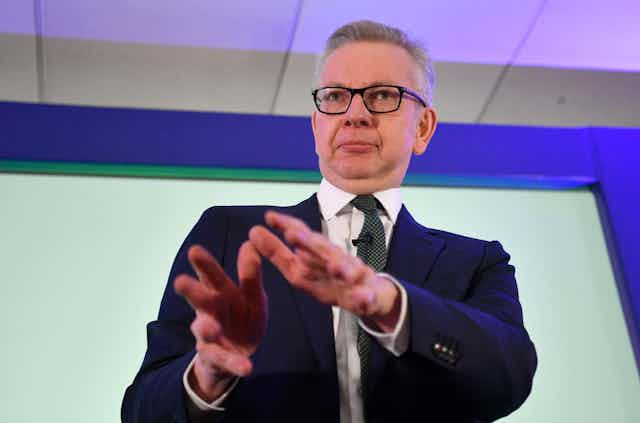It doesn’t matter who’s in the White House or what they ask for, there is no way in any deal that we will see drug prices rise or put the NHS anywhere near the table.
Michael Gove, Conservative politician, November 5 2019
Michael Gove’s denials that the NHS or UK drug prices will be part of any negotiation lacks credibility, given the recent and clearly stated US policy objectives (which are to ensure other countries pay higher prices for US drugs in future trade deals), the fact the US has included drug prices in other trade deals with Canada, Mexico and South Korea and that a former trade negotiator for US president Donald Trump said that he doesn’t understand what the UK’s prime minister meant when he said that the NHS was not on the table earlier this year.
Whatever denials might be made in a general election campaign about whether the NHS or drug prices have been put “on the table” in past or future discussions, any attempts to weaken how the NHS assesses new drugs or removes the rebates currently being paid to the NHS as part of the pharmaceutical price regulation scheme would have a serious impact on the health of NHS patients.
Quite clear
There have been reports of six meetings between UK and US trade officials where the NHS and the prices of US drugs that the NHS buys have been discussed. The agenda and minutes of these meetings are not publicly available so the details of these discussions remain unknown. However, US objectives in any trade negotiation are quite clearly set out in a report from a body appointed by the White House.
The report from the Council of Economic Advisers outlines how US drug companies will reduce domestic prices in return for the administration ensuring they can sell their drugs to foreign countries at higher undiscounted prices in any future trade deals. The summary of the report is quite clear:
Foreign governments are able to set drug prices below those that prevail in the United States and erode the returns to innovation manufacturers might otherwise see from selling in their markets … The two goals of reducing American prices and stimulating innovation are consistent, but can be achieved through a combined strategy that corrects government policies that hinder price-competition at home, while at the same time limiting free-riding abroad.
Indeed, the chair of this committee, Tomas Philipson has been a long-time critic of single-payer collectively funded healthcare systems, such as the NHS, and has been a vocal critic of the way the UK’s National Institute for Health and Care Excellence (NICE), makes decisions about the use of new drugs and considers confidential discounts offered by manufacturers to make them affordable to the NHS.

Huge impact
The estimate of extra costs the NHS will have to find following any deal that would provide US manufacturers with wider access to the NHS at undiscounted prices is uncertain. But evidence suggests that every £100m that the NHS must find could have been used to avoid over 500 deaths and save more than 2,300 years of life, mainly in cancer, circulatory, respiratory and gastrointestinal diseases. Also, we would expect to see large impacts on quality-of-life outcomes in mental health, and respiratory and neurological diseases.
Instead of prices, a deal might focus instead on restricting how NICE evaluates new drugs and considers confidential discounts to make them affordable for the NHS. Or it might remove the rebates that are currently paid at a national level to control the growth in the UK drugs bill.
Some have estimated that a deal that matched the US stated objectives could mean spending an extra £400m on drugs each week – a truly catastrophic outcome for NHS patients. Yet even if the impact was more modest and removed only the rebates paid as part of the pharmaceutical price regulation scheme, the impact would still be significant.
In 2018, rebates of £614m were paid under this scheme and £215m has already been paid in the first quarter of 2019. Any deal that removes these rebates is likely to lead to between 3,000 and 4,400 additional deaths, the loss of between 14,000 and 20,000 years of life and between 47,000 and 67,000 quality-adjusted life years (a measure of health that captures the impact on length and quality of life) each year.
Verdict
Michael Gove’s statement that drug prices are not on the table in a post-Brexit UK-US trade deal is very probably false.
Checking the Facts is a series by The Conversation in which experts review claims made on the 2019 general election campaign trail. If you have any claims for an expert to check, you can: email checkingthefacts@theconversation.com tweet us @ConversationUK with #checkingthefacts DM us on Instagram @theconversationdotcom


